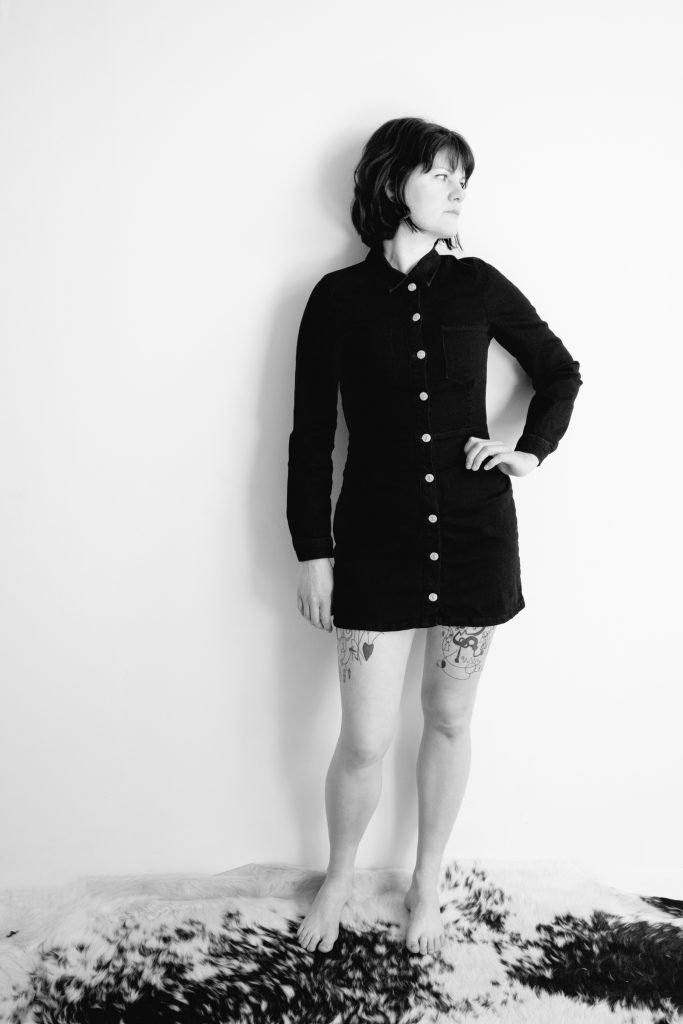Album Premiere: Deathlist – “Loved”


Having released three albums (and three EPs) in as many years, Deathlist’s Jenny Logan had every right to let up on the gas a little. But by the time X Ray Records issued A Canyon this February, Logan was already putting the finishing touches on a follow-up. Aiming for something simpler and more immediate than A Canyon, she wrote and recorded her new album quickly.
The pace brought an already confessional songwriter even closer to touching “the essence of each thing.” Recorded at Destination: Universe with Victor Nash, Loved finds Logan offering listeners “the most uncensored version of my brain.” Those familiar with Deathlist’s doleful brand of post-punk will be happy to know the “uncensored version” of Logan’s vision is not a radical departure from the stark and searching work she’s produced thus far. There are fewer studio flourishes, but the core of Deathlist’s dark power remains.
Like its predecessors, Loved doggedly pursues a single theme, and Logan sums it up on the restive title track. “It doesn’t feel right to be loved,” she sings, “I don’t want to be loved.” This is not the bitter refusal of a non-believer. It is not a nihilistic dismissal of the concept of love or a bold assertion of independence. It is a devastating acknowledgement of the fact that control and abuse and cruelty can too easily masquerade as acts of love. It doesn’t feel right to be loved because love wasn’t part of the equation in the first place.
Loved is the bleakest Deathlist album to date, which, given the despair that has informed Logan’s output so far, is really saying something. On A Canyon and FUN, Logan wrestled with the many-headed specter of grief. But even at their most grim, the songs on those albums at least implied an end to the pain–the black expanse of mourning will eventually find some light, ghosts will fade, survival will dull the sharpest edges of loss. That is just how time works.
There is no such faint hope cutting through Deathlist’s new collection. If Logan has finally drilled down to the essence, what she has found there is a permanent vacancy, a fundamental lack as old as she is. Loved doesn’t excavate the wreckage of a romantic relationship. Instead, it tunnels into the cavern of loss that is born with and inside every one of us.
On “Blood,” Logan implores a family member to “look at the blood we share” before sealing the invitation with a hopeless guarantee. “You don’t know me,” she promises, pointing to a chasm that cannot be bridged by mere familiarity. On “I Can’t Be Something To You,” she is a “baby girl who makes noise and does not obey,” and when she finds someone to hold on “Your Body Falls,” the consolation becomes horror as the body becomes “a corpse in my arms.”
These are not the wounded pleas of a spurned lover. They are animal cries, primal screams that speak to the impossibility of being fully known and unconditionally loved. There is no vanished Eden, no infantile bliss to which we might return one day. But! To shout into the emptiness, to name those shouts, to understand what they mean–that is something. That is Loved.




